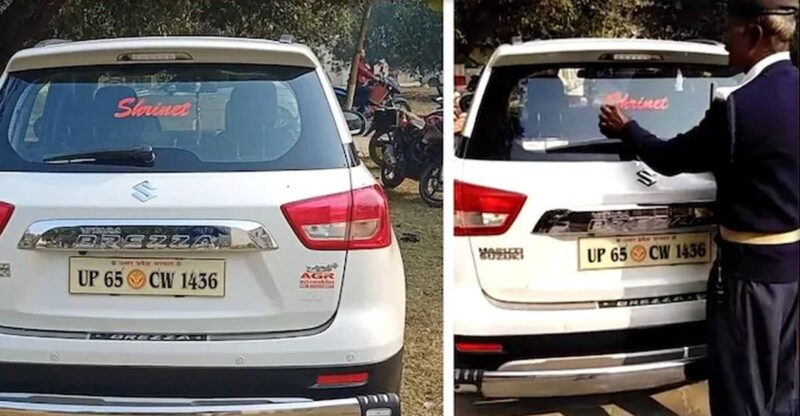Simply put, it is illegal to put stickers on cars in India, and doing so can result in a substantial fine. You might have seen some vehicles with stickers and wondered about the legality of this practice. In today’s post, we will delve into the details of this issue, so keep reading to get the full picture.
What Is a Sticker?
Stickers are adhesive labels typically made from vinyl sheets that adhere to surfaces for extended periods. They consist of two parts: a backing paper that you peel off and the sticky label itself. Once applied, the design or text is visible on the front. Stickers can be found on a variety of items, including notebooks, drink bottles, and yes, cars. High-quality stickers can last over five years on a car. Although stickers and decals are often confused, both are adhesive labels, but the Motor Vehicles Act governs their use.
Motor Vehicles Act and Stickers
The Motor Vehicles Act is the primary legislation regulating road transport vehicles in India. Specifically, Section 177 of the Act addresses the use of stickers on vehicles. This section stipulates that anyone who violates any provision of the Act, where no specific penalty is provided, can be fined up to Rs. 100 for a first offense and up to Rs. 300 for subsequent offenses. This implies that using stickers on vehicles, when not explicitly permitted by the Act, is generally illegal.
Additionally, the Central Motor Vehicle Rules, 1989, outline guidelines for vehicle registration plates. According to these rules, registration plates must not bear any stickers or adhesives. In other words, stickers cannot be placed on a vehicle’s number plate. Registration plates must feature a chromium-based hologram and other specifications to prevent tampering or counterfeiting.
Caste and Religious Stickers: Strictly Prohibited
Stickers displaying caste or religious symbols are explicitly prohibited. Section 179(1) of the Motor Vehicles Act is used to penalize individuals who use such stickers on their vehicles. Recently, police in Noida and Ghaziabad conducted special drives against these stickers, fining over 2,300 people. The fine for placing caste or religious stickers on a car is Rs. 1,000, which increases to Rs. 5,000 if placed on the number plate. Such stickers can incite communal tension, which is why they are banned.
Professional and Institutional Stickers
Many professionals, such as doctors and lawyers, use stickers on their vehicles for identification purposes. These stickers are permissible but must meet specific conditions. For example, doctors can use stickers issued by the state, while lawyers may use stickers provided by the Bar Council of India. These stickers are allowed for parking and identification in designated areas like hospitals and courts.
In conclusion, while the general rule is that it is illegal to put stickers on cars in India, there are specific exceptions and guidelines for their use. To avoid fines and legal issues, it’s essential to understand and adhere to these regulations.













